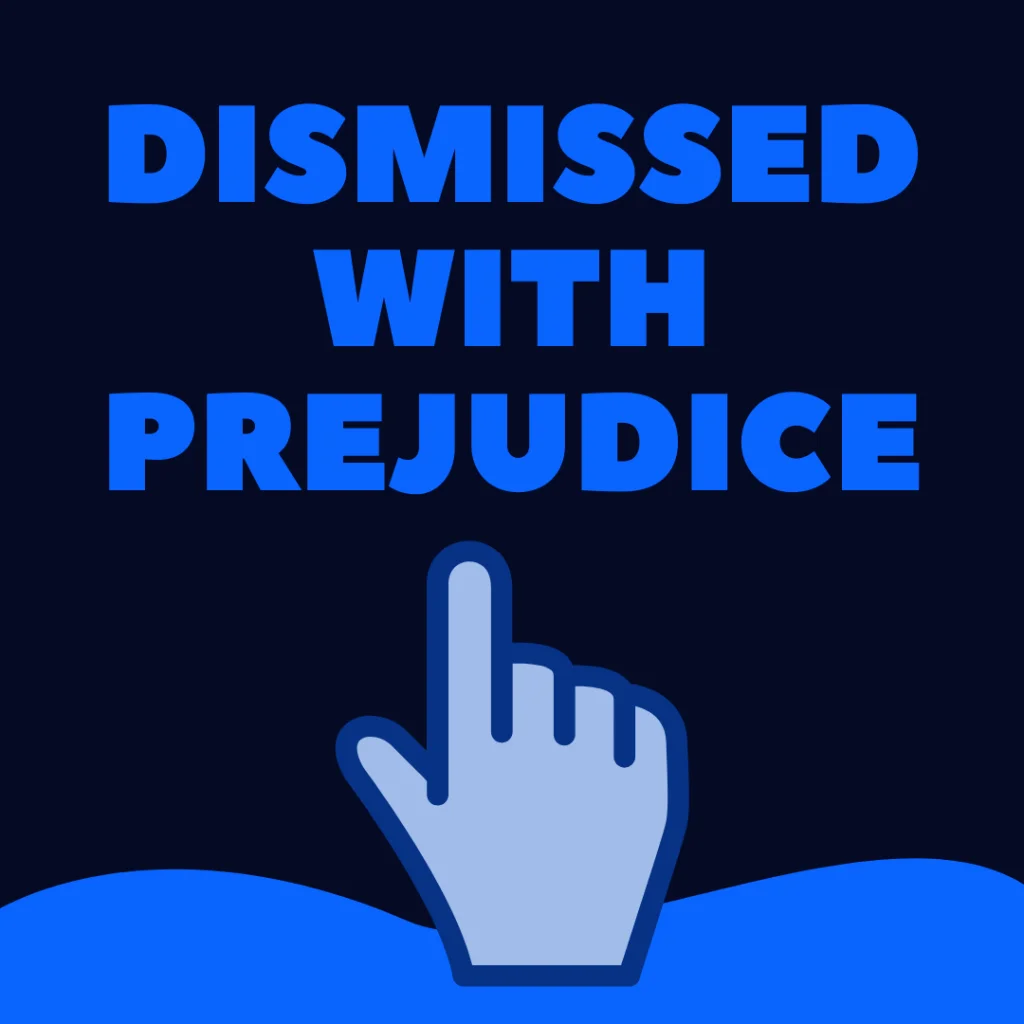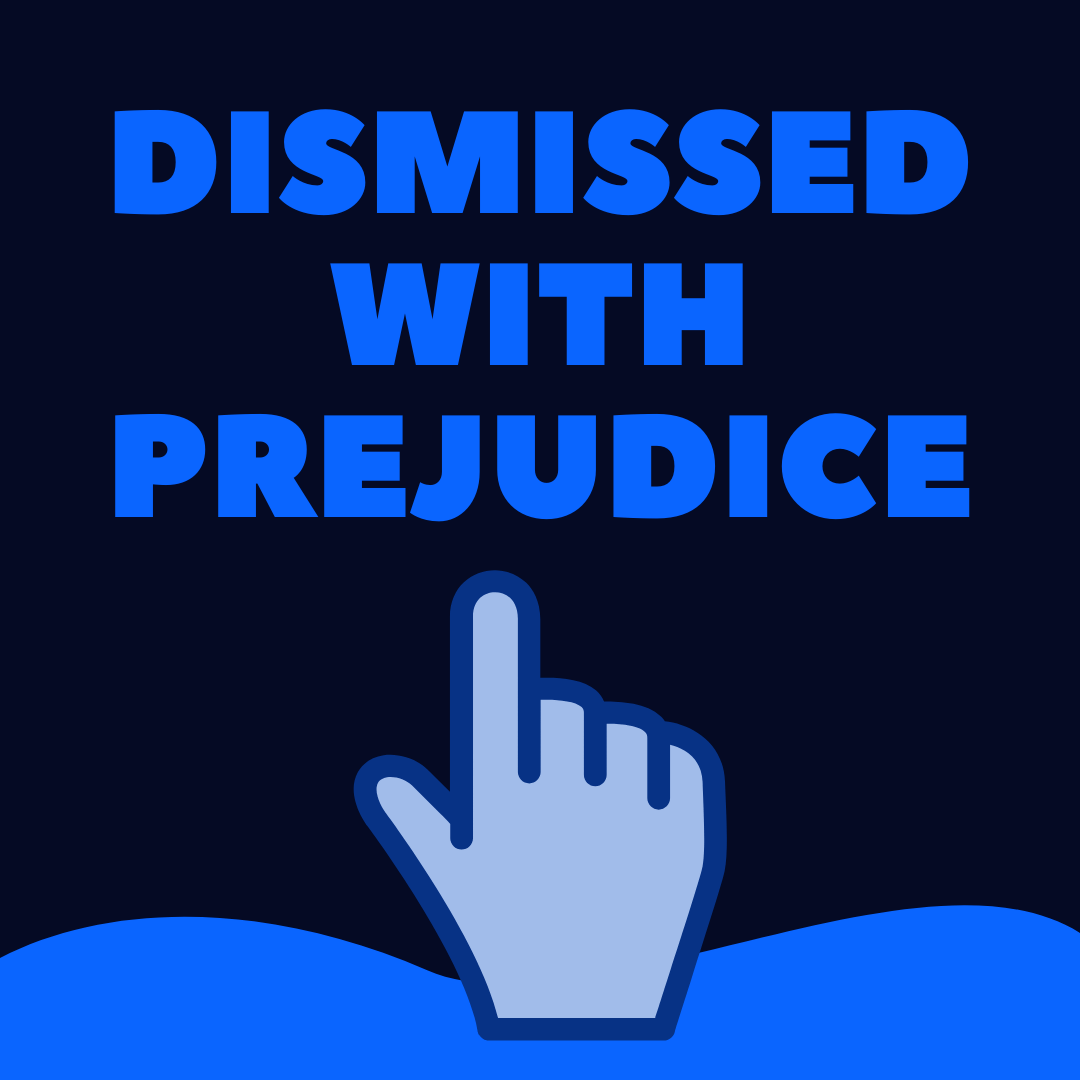“Dismissed with prejudice” in Hawaii means the same thing that it does in the rest of the legal jurisdictions in the United States: that a case (or claim) is ended, and cannot be brought again.
Dismissed With Prejudice In Hawaii (EXPLAINED)
Disclaimer
The contents of this web page are for informational purposes only, and nothing you read is intended to be legal advice. Please review our disclaimer about law/legal-related information on this website before taking action based upon anything you read or see.
What Does A “Dismissal” Mean?
In general, a dismiss means that a case as it relates to a particular person, entity, or party (be it civil or criminal) is concluded.
The dismissal is recorded (or entered) on the record by an oral order of a judge or magistrate, or via a paper judgment of dismissal.
What Does “With Prejudice” Mean (Versus “Without Prejudice”)?
As it relates to legal documents, when something is entered with the words “with prejudice” it means that the thing referenced cannot be brought again.
Participants in the legal system will often see motions to dismiss made “with prejudice” and “without prejudice.”
It is important to know the difference, especially if the lawyers involved in the case are negotiating about the disposition of a particular claim or case.
If a count, claim, or case is dismissed “without prejudice” the case can be filed again.
However, if the case is filed again, it would still need to meet the other requirements of filing a case from scratch, such as meeting the applicable statute of limitations.
Why Would A Case Be Dismissed With Prejudice Or Without Prejudice?
There are several reasons why a case might be dismissed with prejudice.
First, there are statutory reasons or guidelines for a dismissal with or without prejudice.
For example, in Hawaii, under the Contractor Repair Act (Section 672E-13), the court or arbitrator shall dismiss any action failing to meet the requirements of the statute, unless the failure to meet the requirements of the chapter was the result of the some specific circumstances. (source)
The statutes speak to specifically one way or another whether prejudice or none should be applied to the dismissal.
Second, there are strategic reasons to dismiss a case with or without prejudice.
A district attorney might move to dismiss a case without prejudice to give law enforcement more time to investigate the case, or to effectuate the terms of a defendant’s guilty plea.
Third, the dismissal with or without prejudice is within the judge’s right.
Sometimes judges will exercise their discretion based upon the case and rule that a motion, count, claim, or case be dismissed with prejudice (or without).
Some reasons why a judge might decide on his or her own to dismiss a case with prejudice: if the party has brought the motion before, if the motion was brought in bad faith, if it is the right thing to do.
Some reasons why a judge might decide to dismiss a case/motion without prejudice: the party had only brought the motion once, the motion was brought in the best of faith, the motion or claim was brought without the assistance of an attorney, or it is just the right thing to do.
Can A Dismissal With Prejudice (or Without Prejudice) Be Appealed?
It depends.
Not every single decision made by a judge or jury can be appealed.
There are also strict rules about how and when a court’s decision can be appealed.
Yes, some dismissals with prejudice (or without prejudice) can be appealed.
But this will depend again on the case, and the particular case/motion/count dismissed.
Wrap Up
Does it make it a better justice system when all the judges are former prosecutors? That’s another question entirely.
Want to learn more about your criminal justice system?
Browse our free legal library guides for more information.
You might also like:
- What Does an Amended Charge Mean?
- Can The Prosecutor Call The Defendant As a Witness?
- Can a Prosecutor Date a Defense Attorney?
- Can a Prosecutor Also Be a Defense Attorney?
- When Does a Prosecutor Give Closing Arguments?
- Do Prosecutors Always File Charges?
- Can You Accept a Plea Deal During Trial?
- Can Co-Defendants Have Contact?


